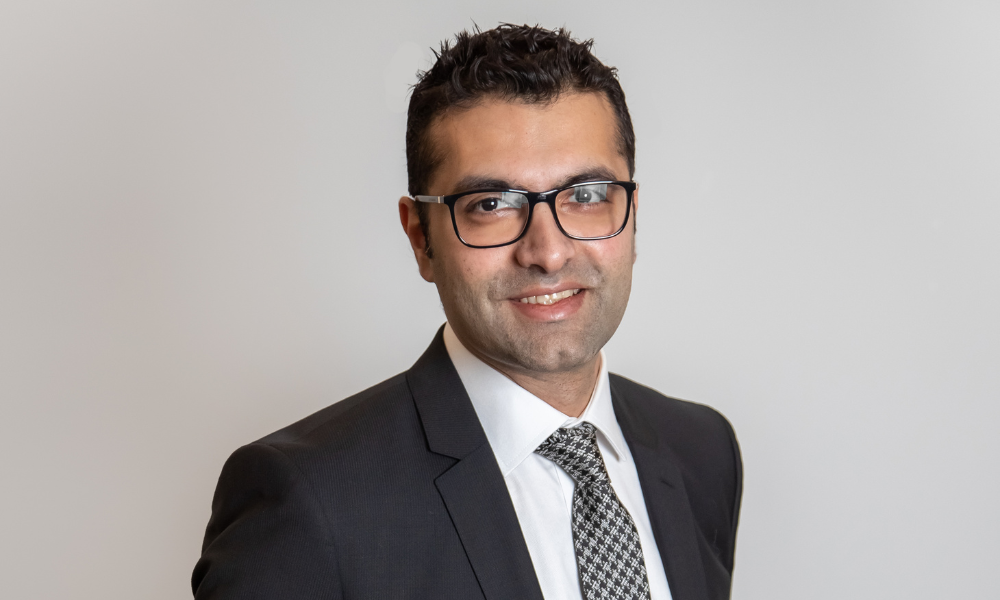In today's world, financial plans need to be flexible and financial planners require the 'three Es'

With so much turmoil in today’s world, financial plans have to be flexible to suit people’s changing situations. If a client or their family member gets sick or injured or loses their job, a well thought out plan alleviates a lot of stress. From an emergency fund that will last 6-12 months, for example, to the long-term disability insurance they decided to purchase just in case, “if there are bumps, the ability to go back to the plan and say we’ve accounted for those bumps is critical,” says Alim Dhanji, Certified Financial Planner (R) at Assante Financial Management Ltd.
Even for more planned events, such as moving to a different province or changing jobs, the financial plan must be flexible. What does your cash flow look like now? Are your goals the same? Staying on track no matter what life throws at you is a big part of financial planning, and to keep clients striving towards their financial goals they need a professional who hits the three Es — education, ethics, and experience — and that’s what a CFP brings to the table in spades.
CFPs listen to goals, come up with a budget, talk about emergency funds, explore insurance and risk management, handle estate and tax planning, and use that information to craft a multi-layered plan based on short-, medium-, and long-term goals. If there’s any major change in life, the plan can be efficiently updated to align with the client’s current circumstances.
“We look more broadly at the strategy and planning side of things — that’s the big differentiator,” says Dhanji, noting CFPs are the gold standard. “I’m more or less seen as the consultant, I’m not biased in any way, and people get better, more sound advice.”
When it comes to building his practice, Dhanji doesn’t have an official marketing strategy: he’s just passionate about being involved in the community and this often leads to people viewing him as the “go-to guy” for their financial planning needs. He speaks at UBC a couple times a year where he takes new grads on a “financial hike,” which resonates well with the younger people. Goals are plotted as viewpoints and plot out where the hike is ultimately headed, an emergency kit is a part of that as well in terms of setting aside money for rainy days, and then fund backpacks with medium term for purchasing a house or starting a business and then longer term fund backpacks that deal with retirement planning.
Dhanji also participates in junior achievement within the local elementary and high schools and volunteers with the community income tax program where he helps seniors and low-income families with their tax returns, identifying government benefits and other efficiencies.
“By doing these things, you build your credibility,” Dhanji says. “You’re not attempting to sell anybody a product, you’re just going to help them with no real return. It doesn’t happen overnight but it resonates well with people in the community and they think Alim is the guy we want to talk to. My strategy is being present and helping out wherever I can.”
Dhanji hears a lot lately about how expensive everything is, especially groceries, and he’s able to help clients through the tough times through fundamentals like budgeting, avoiding debt financing wherever possible, and putting an end to unconscious spending like online purchases or the unnecessary items that tend to line the checkout area. His practice has evolved to deal with whole family units, where he has a hand in shaping responsible investors of the future who understand the importance of money and learn to be charitable.
The purpose is to build a plan that can go in a different direction based on their situation, and even without a major life event they get out of date pretty quickly so client communication, consistent updates and adjustments to the plan, and not locking them into products are central tenets. Dhanji also hears from clients about the uncertainty in the financial market, and he says collaboration across involved financial professionals is key. Flexibility isn’t just important on the planning side, but on the other side of things in terms of investments too: if their goals are short-term, keep investments boring — like a high interest savings account — but if they’re longer term, based on their risk tolerance, they could invest their money a bit more.
For Dhanji, it’s all about the personal touch and building strong, lasting relationships, and a big part of that is walking side by side with the client through their proverbial financial hike — and not missing the view along the way.
“If they retire, for example, that’s a big achievement for your client so you should help them appreciate that,” Dhanji says. “A big part of the planning process is to be present, enjoy the milestones, and celebrate them.”



